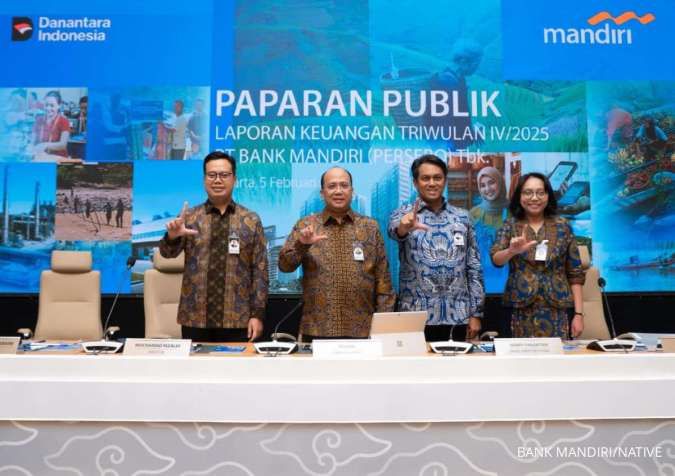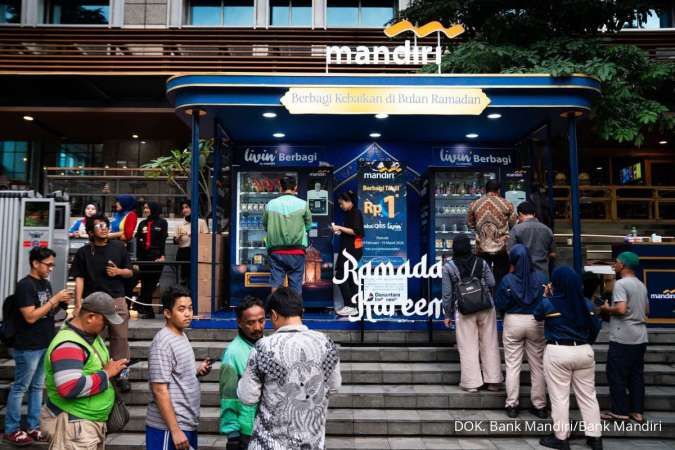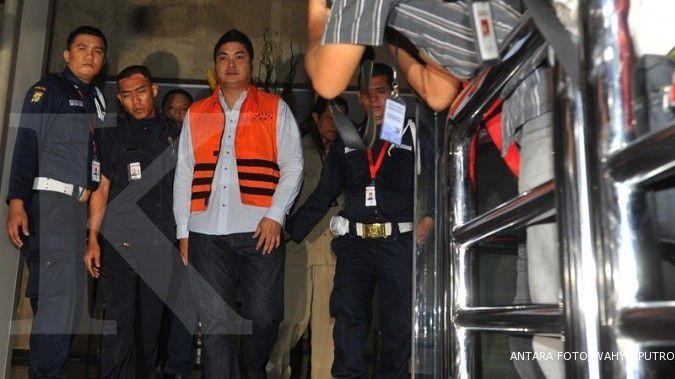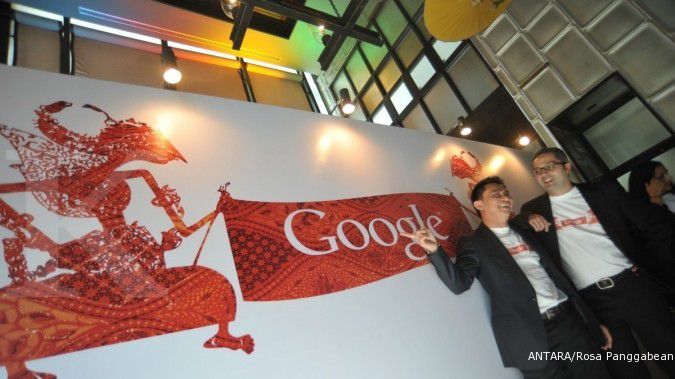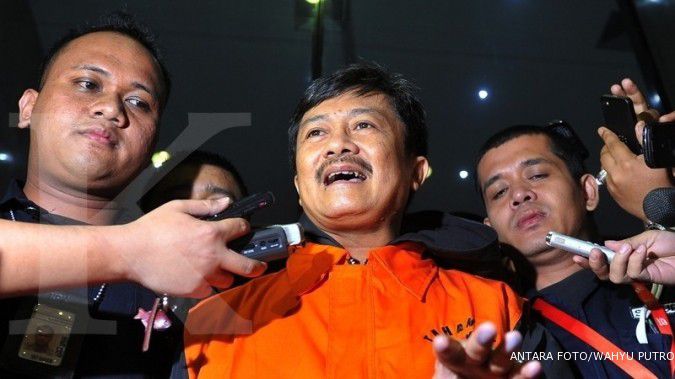The ruling Democratic Party is facing another huge blow to its electability in the wake of the SKKMigas graft scandal, which may implicate one of its top politicians in addition to those who have already been arrested on corruption charges. Analysts say that the high-profile bribery case at oil and gas regulator SKKMigas — which is under the supervision of Energy and Mineral Resources Minister Jero Wacik, a member of the Democratic Party’s supreme assembly — could stymie the party’s attempts to restore its tarnished image before the 2014 elections. Arya Fernandes, a political analyst from Charta Politika, told The Jakarta Post recently that even though the Corruption Eradication Commission (KPK) had not yet found evidence to incriminate Jero, rumors of his complicity in the case alone could hurt the party. “Rumors and speculations would be enough for certain political groups to use the scandal to attack the ruling party. Almost all corruption cases probed by the KPK have been exploited by outsiders to serve certain interests,” he said. A few days after SKKMigas chief Rudi Rubiandini was arrested for allegedly taking US$700,000 in bribes from a foreign company, a message, claimed to be written by Rudi, began circulating in social media saying he had been pressured by the Democratic Party to accept the bribe money. “I was stuck in a situation because of a demand for a huge amount of funds from executives of the ruling party to hold a convention,” the message said, referring to the Democratic Party’s presidential primary. The KPK doubted the validity of the message, saying it was likely a hoax. The antigraft body, however, said it had yet to rule out the possible involvement of Jero and his party in the scandal. Rudi, a professor at the Bandung Institute of Technology (ITB), is known as an academic who maintains a close relationship with Jero. He was Jero’s deputy before being assigned by President Susilo Bambang Yudhoyono to lead SKKMigas. KPK investigators last week raided the office of Energy and Mineral Resources Ministry secretary general Waryono Karyo, where it found and confiscated $200,000 in cash. Jero claimed that the money was for operational purposes, but the KPK doubted his claim. “We found a large amount of dollars in [Waryono’s] office,” KPK deputy leader Bambang Widjojanto said. He added that the KPK would question Jero if the probe into the case unveiled evidence indicating his complicity. The Democratic Party was again linked to the scandal when it was revealed that Deviardi, or Ardi, who acted as a middleman between Rudi and the Kernel Oil official who proffered the bribe money, is related to one of the party’s executives, Achsanul Qosasi. Ardi is allegedly often seen at party events, though it remains unclear if he is a party member. When asked if Ardi was a Democrat, party executive chairman Syariefuddin Hasan only said, “There are so many Democratic Party members.” The Democratic Party faced its worst crisis earlier this year when then chairman Anas Urbaningrum was rumored to have been involved in the Hambalang scandal. Several party officials, including Jero, called for Anas’ dismissal, saying that the case had dented the party’s popularity, which had plummeted from 20 percent to 9 percent. Anas resigned after being officially charged by the KPK. In addition to Anas, the KPK has charged several other top Democratic Party politicians, including former youth and sports minister Andi Mallarangeng, former party treasurer Muhammad Nazaruddin and former lawmaker Angelina Sondakh. The party has launched massive antigraft campaigns and is now holding a primary to regain public support. Several surveys have shown that the party’s popularity and electability slightly rebounded after the President announced the plan to hold the primary in April. It remains to be seen if the trend would continue following the SKKMigas scandal. (Bagus BT Saragih)
SKKMigas scandal could hit Democratic Party
The ruling Democratic Party is facing another huge blow to its electability in the wake of the SKKMigas graft scandal, which may implicate one of its top politicians in addition to those who have already been arrested on corruption charges. Analysts say that the high-profile bribery case at oil and gas regulator SKKMigas — which is under the supervision of Energy and Mineral Resources Minister Jero Wacik, a member of the Democratic Party’s supreme assembly — could stymie the party’s attempts to restore its tarnished image before the 2014 elections. Arya Fernandes, a political analyst from Charta Politika, told The Jakarta Post recently that even though the Corruption Eradication Commission (KPK) had not yet found evidence to incriminate Jero, rumors of his complicity in the case alone could hurt the party. “Rumors and speculations would be enough for certain political groups to use the scandal to attack the ruling party. Almost all corruption cases probed by the KPK have been exploited by outsiders to serve certain interests,” he said. A few days after SKKMigas chief Rudi Rubiandini was arrested for allegedly taking US$700,000 in bribes from a foreign company, a message, claimed to be written by Rudi, began circulating in social media saying he had been pressured by the Democratic Party to accept the bribe money. “I was stuck in a situation because of a demand for a huge amount of funds from executives of the ruling party to hold a convention,” the message said, referring to the Democratic Party’s presidential primary. The KPK doubted the validity of the message, saying it was likely a hoax. The antigraft body, however, said it had yet to rule out the possible involvement of Jero and his party in the scandal. Rudi, a professor at the Bandung Institute of Technology (ITB), is known as an academic who maintains a close relationship with Jero. He was Jero’s deputy before being assigned by President Susilo Bambang Yudhoyono to lead SKKMigas. KPK investigators last week raided the office of Energy and Mineral Resources Ministry secretary general Waryono Karyo, where it found and confiscated $200,000 in cash. Jero claimed that the money was for operational purposes, but the KPK doubted his claim. “We found a large amount of dollars in [Waryono’s] office,” KPK deputy leader Bambang Widjojanto said. He added that the KPK would question Jero if the probe into the case unveiled evidence indicating his complicity. The Democratic Party was again linked to the scandal when it was revealed that Deviardi, or Ardi, who acted as a middleman between Rudi and the Kernel Oil official who proffered the bribe money, is related to one of the party’s executives, Achsanul Qosasi. Ardi is allegedly often seen at party events, though it remains unclear if he is a party member. When asked if Ardi was a Democrat, party executive chairman Syariefuddin Hasan only said, “There are so many Democratic Party members.” The Democratic Party faced its worst crisis earlier this year when then chairman Anas Urbaningrum was rumored to have been involved in the Hambalang scandal. Several party officials, including Jero, called for Anas’ dismissal, saying that the case had dented the party’s popularity, which had plummeted from 20 percent to 9 percent. Anas resigned after being officially charged by the KPK. In addition to Anas, the KPK has charged several other top Democratic Party politicians, including former youth and sports minister Andi Mallarangeng, former party treasurer Muhammad Nazaruddin and former lawmaker Angelina Sondakh. The party has launched massive antigraft campaigns and is now holding a primary to regain public support. Several surveys have shown that the party’s popularity and electability slightly rebounded after the President announced the plan to hold the primary in April. It remains to be seen if the trend would continue following the SKKMigas scandal. (Bagus BT Saragih)
